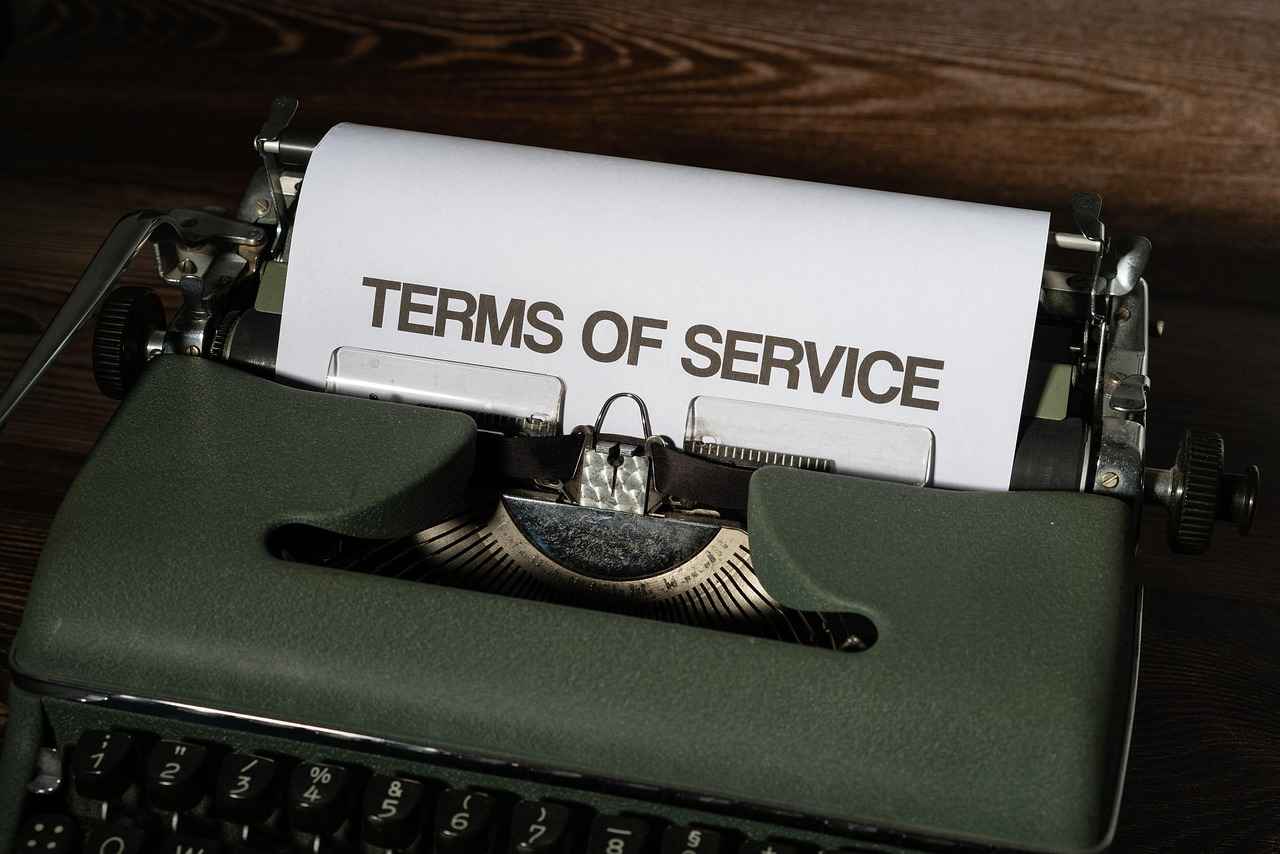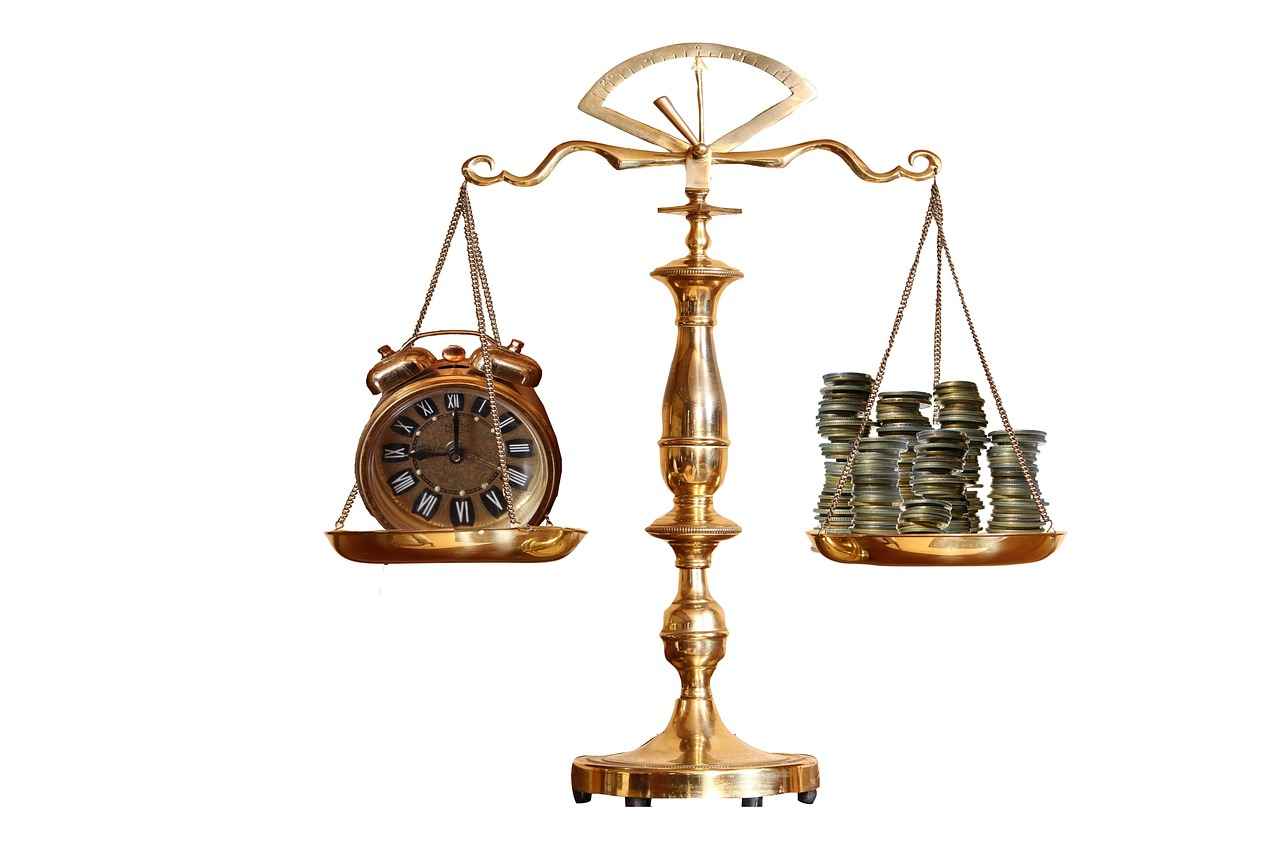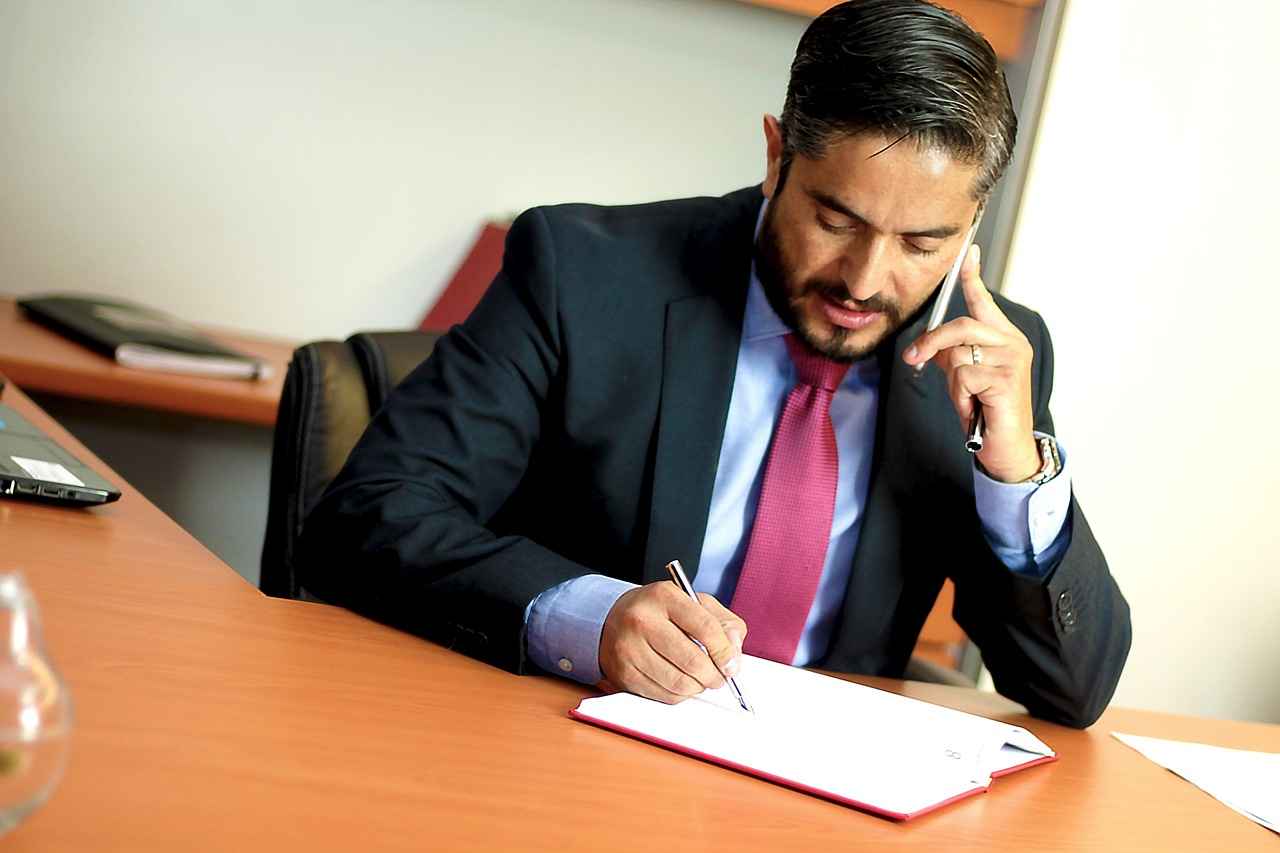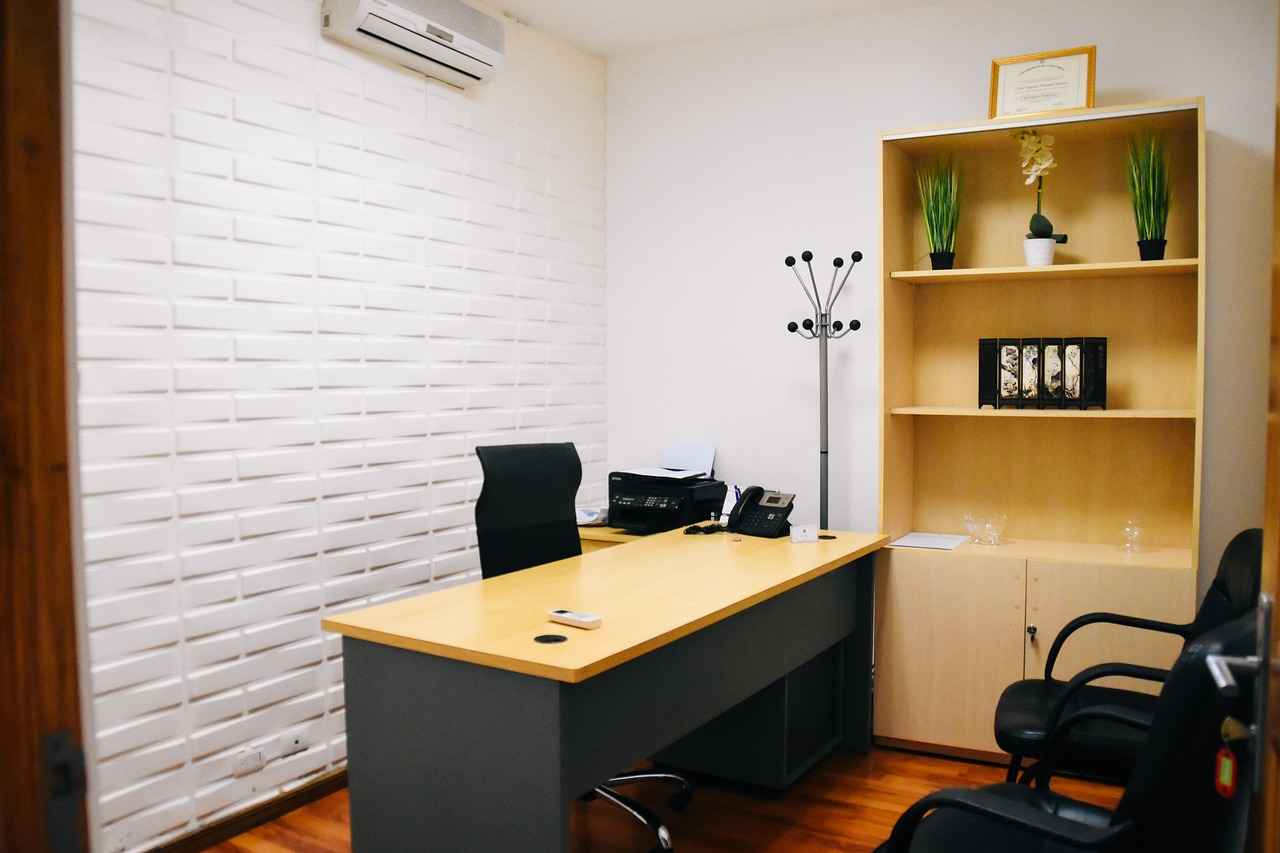This article provides an in-depth guide on navigating the legal landscape in Newark, New Jersey, to find qualified lawyers for various legal cases.
Understanding Common Legal Cases in Newark
Newark, being a bustling urban center, sees a variety of legal cases. Understanding the common types of legal issues can help individuals identify their specific needs. Some prevalent cases include:
- Personal Injury: These cases arise when an individual suffers harm due to another’s negligence.
- Medical Malpractice: This involves healthcare professionals failing to provide adequate care, resulting in patient harm.
- Breach of Contract: Disputes arising when one party fails to fulfill their contractual obligations.
- Landlord-Tenant Disputes: Conflicts between landlords and tenants regarding lease agreements.
- Defamation: Cases involving false statements that damage an individual’s reputation.
Personal Injury Cases: Finding the Right Attorney
When facing a personal injury case, selecting the right attorney can significantly impact your claim’s outcome. Here are key considerations:
- Experience: Look for attorneys who specialize in personal injury law and have a proven track record.
- Client Testimonials: Reviews from previous clients can provide insight into an attorney’s effectiveness.
- Contingency Fees: Many personal injury lawyers work on a contingency fee basis, meaning they only get paid if you win your case.
Medical Malpractice: Choosing the Right Legal Representation
Medical malpractice cases require specialized knowledge. When searching for an attorney, consider the following:
- Specialization: Ensure the lawyer has substantial experience in medical malpractice law.
- Credentials: Look for board certifications and a history of successful settlements.
- Consultation: Many attorneys offer free consultations; use this opportunity to gauge their expertise.
Breach of Contract: Finding an Experienced Attorney
In breach of contract cases, having an attorney knowledgeable in contract law is essential. Here’s what to look for:
- Industry Knowledge: An attorney familiar with your industry can provide valuable insights.
- Negotiation Skills: Look for lawyers who are strong negotiators, as many cases can be settled out of court.
- Clear Communication: Effective communication is vital; your attorney should keep you informed throughout the process.
Landlord-Tenant Disputes: Navigating Legal Challenges
Landlord-tenant disputes are common in Newark. To resolve these conflicts effectively, consider:
- Specialization: Choose an attorney who specializes in landlord-tenant law.
- Local Knowledge: Familiarity with Newark’s housing laws can be beneficial.
- Reputation: Research the attorney’s reputation in handling similar cases.
Defamation Cases: Securing the Right Legal Counsel
Defamation involves complex legal issues. Here’s how to find the right attorney:
- Experience: Seek lawyers who have successfully handled defamation cases.
- Legal Strategy: An effective attorney should have a clear strategy for proving harm and intent.
- Track Record: Investigate their history of verdicts and settlements in defamation cases.
Employment Disputes: Finding a Trustworthy Lawyer
Employment disputes can arise in various contexts. To navigate these issues, look for:
- Specialization: An attorney specializing in employment law will understand workplace regulations.
- Track Record: Choose a lawyer with a history of successful outcomes in similar cases.
- Client Focus: Ensure the attorney prioritizes employee rights and well-being.
Product Liability Cases: Securing Expert Legal Help
Product liability cases can be complex. Finding the right attorney involves:
- Expertise: Look for attorneys with experience in product liability law.
- Consumer Protection Knowledge: Understanding consumer protection laws is crucial for your case.
- Access to Experts: An attorney with a network of expert witnesses can strengthen your case.
Class Action Lawsuits: Finding Qualified Representation
Class action lawsuits involve multiple plaintiffs. To find a suitable attorney, consider:
- Experience: Seek attorneys who have successfully led class action lawsuits.
- Understanding of Legal Procedures: Familiarity with the legal and procedural requirements is critical.
- Client-Centric Approach: Choose lawyers who prioritize the needs of the class over profit.
Criminal Defense: Choosing the Right Lawyer for Your Case
Criminal defense cases require specialized knowledge. When selecting an attorney, focus on:
- Criminal Law Background: Look for attorneys with a strong background in criminal law.
- Communication Skills: Effective communication is essential throughout the legal process.
- Defense Strategy: Your attorney should provide a clear strategy for your defense.
Family Law: Finding the Right Attorney for Divorce and Custody
Family law cases require sensitivity and expertise. Here are key traits to look for:
- Specialization: Choose an attorney who specializes in family law.
- Experience: Look for lawyers with a history of handling similar cases.
- Compassion: Your attorney should prioritize your family’s best interests in all decisions.
Bankruptcy: Securing Expert Legal Guidance
Bankruptcy cases can be daunting. Finding an experienced attorney is crucial. Consider the following:
- Track Record: Seek attorneys with a strong record in bankruptcy cases.
- Clear Guidance: Your attorney should help you understand your options and the implications of filing.
- Transparency: Look for lawyers who are transparent about fees and the bankruptcy process.

Understanding Common Legal Cases in Newark
In Newark, New Jersey, individuals often encounter a variety of legal challenges that necessitate the expertise of qualified attorneys. Understanding the most common types of legal cases can empower residents to identify their specific legal needs. This overview will cover several prevalent case types, including personal injury, divorce, and criminal offenses, among others. By familiarizing themselves with these categories, individuals can make informed decisions when seeking legal representation.
Personal Injury Cases
Personal injury cases are among the most frequently encountered legal issues in Newark. These cases arise when an individual suffers harm due to another party’s negligence or wrongdoing. Common examples include car accidents, slip and fall incidents, and medical malpractice. When seeking a personal injury attorney, it is crucial to look for someone with a proven track record in similar cases, as their experience can significantly influence the outcome. Additionally, consider their negotiation skills and whether they are willing to take cases to trial if necessary.
Divorce and Family Law
Divorce cases often involve complex emotional and financial issues, making it essential to find a family law attorney who understands the nuances of such matters. In Newark, attorneys specializing in family law can assist with divorce proceedings, child custody arrangements, and spousal support disputes. When selecting a family law attorney, prioritize those who demonstrate empathy and a commitment to advocating for your best interests. Look for credentials such as membership in family law associations and positive client reviews.
Criminal Offenses
Criminal defense cases encompass a wide range of offenses, from minor misdemeanors to serious felonies. In Newark, individuals facing charges related to drug offenses, theft, assault, or DUI/DWI should seek an attorney with extensive experience in criminal law. A qualified criminal defense attorney will provide a clear defense strategy and be proactive in protecting your rights throughout the legal process. Be cautious of attorneys who lack transparency about their fees or who have limited experience in the specific charges you are facing.
Medical Malpractice
Medical malpractice cases arise when healthcare professionals fail to provide the standard of care, resulting in harm to patients. These cases can be particularly complex, requiring attorneys with specialized knowledge in healthcare law. When searching for a medical malpractice attorney in Newark, consider their success rate in similar cases and their ability to collaborate with medical experts. Avoid attorneys who lack a solid understanding of medical terminology or who do not have a proven history of successful settlements.
Landlord-Tenant Disputes
In Newark, landlord-tenant disputes are common, often involving issues such as eviction, lease agreements, and property maintenance. Finding an attorney who specializes in landlord-tenant law can help resolve these conflicts efficiently. Look for attorneys who have experience representing either landlords or tenants, as this background will provide valuable insights into your case. Be wary of attorneys who lack familiarity with local housing laws or who do not prioritize clear communication.
Defamation Cases
Defamation cases, including libel and slander, require a legal professional skilled in media law. In Newark, individuals facing defamation claims should seek attorneys who understand the complexities of proving harm and intent. When evaluating potential attorneys, consider their experience with similar cases and their ability to navigate the legal intricacies involved. Avoid lawyers who do not have a clear strategy for your case or who lack relevant experience.
Employment Disputes
Employment disputes can arise in various contexts, including wrongful termination, discrimination, and wage disputes. In Newark, it is vital to find an attorney who specializes in employment law to navigate these complex issues effectively. Look for attorneys with a strong understanding of workplace regulations and a history of successful outcomes for clients in similar situations. Be cautious of attorneys who lack experience in your specific employment issue or who do not prioritize employee rights.
Product Liability Cases
Product liability cases can be intricate, often involving issues related to defective products and consumer safety. Finding an attorney who specializes in product liability law is crucial for navigating the complexities of proving liability. Seek attorneys with experience in similar cases and a strong understanding of consumer protection laws. Avoid attorneys who do not have a track record of successful cases or who lack access to expert witnesses, as these factors are essential for building a robust case.
Bankruptcy Cases
Bankruptcy cases can be daunting, and individuals in Newark facing financial difficulties should seek experienced legal guidance. An attorney who understands the complexities of bankruptcy law can help navigate this challenging process. When evaluating potential bankruptcy attorneys, consider their track record in handling similar cases and their ability to provide clear guidance on your options. Be cautious of attorneys who make unrealistic promises or charge excessive fees without clear justification.

Personal Injury Cases: Finding the Right Attorney
Personal injury cases are a significant aspect of the legal landscape in Newark, New Jersey, and across the United States. These cases arise when individuals suffer harm due to the negligence or wrongful actions of others, and securing the right legal representation can make a profound difference in the outcome. Understanding how to find a qualified attorney specializing in personal injury law is essential for anyone navigating this complex area.
Why Is It Important to Choose the Right Personal Injury Lawyer?
The choice of a personal injury attorney can greatly influence the compensation you receive for your injuries. A skilled lawyer will not only understand the nuances of personal injury law but also possess the negotiation skills necessary to deal with insurance companies and opposing counsel. They can help you gather evidence, assess damages, and build a strong case that accurately represents your needs and circumstances.
Key Steps to Finding the Right Personal Injury Attorney
- Research and Referrals: Start by seeking referrals from friends, family, or other attorneys. Online platforms like Avvo and FindLaw can also provide valuable insights into attorney qualifications and client reviews.
- Check Experience and Specialization: Look for attorneys who specialize in personal injury law and have a proven track record in handling cases similar to yours. Their experience can be a crucial factor in the outcome of your case.
- Evaluate Communication Skills: A good attorney should be approachable and willing to explain legal concepts clearly. Effective communication is vital throughout the legal process.
- Assess Fees and Payment Structures: Understand how the attorney charges for their services. Many personal injury lawyers work on a contingency fee basis, meaning they only get paid if you win your case. Be sure to clarify any additional fees that may apply.
- Schedule Consultations: Take advantage of free consultations to meet potential attorneys. This is your opportunity to ask questions, discuss your case, and gauge whether you feel comfortable working with them.
Red Flags to Avoid When Hiring a Personal Injury Lawyer
- Guaranteed Outcomes: Be wary of any attorney who guarantees a specific outcome. Legal cases are unpredictable, and no lawyer can promise success.
- Lack of Transparency: Attorneys should be upfront about their fees and the potential costs involved. Avoid those who are vague or evasive about financial matters.
- Poor Communication: If an attorney is difficult to reach or does not respond promptly to your inquiries, it may indicate a lack of commitment to your case.
- Negative Reviews: Research online reviews and testimonials. A pattern of negative feedback can be a warning sign about an attorney’s capabilities.
Credentials to Look For in a Personal Injury Attorney
When evaluating potential personal injury lawyers, consider their credentials and professional affiliations. Look for attorneys who are members of organizations such as the American Association for Justice or local bar associations. These memberships often indicate a commitment to continuing education and a professional approach to legal practice.
Additionally, verify their standing with the state bar association to ensure they are licensed and in good standing. Any disciplinary actions should be a red flag when considering a lawyer’s qualifications.
Understanding the Legal Process in Personal Injury Cases
It’s essential to have a basic understanding of how personal injury cases typically proceed. After hiring an attorney, they will conduct an initial investigation, gather evidence, and negotiate with insurance companies on your behalf. If a fair settlement cannot be reached, your attorney may file a lawsuit and represent you in court. Having an experienced attorney can significantly impact your chances of success at each stage of the process.
In conclusion, finding the right personal injury attorney in Newark involves careful consideration of various factors, including experience, communication, and credentials. By following these guidelines, individuals can enhance their chances of securing competent legal representation that will advocate for their rights and help them obtain the compensation they deserve.
What to Look for in a Personal Injury Lawyer
When it comes to seeking legal representation for personal injury cases, the choice of lawyer can be a pivotal factor in the outcome of your case. It is crucial to ensure that the attorney you select possesses the right qualifications, experience, and dedication to effectively advocate for your rights. Here are some key considerations to keep in mind:
- Experience in Personal Injury Law: Look for a lawyer who specializes in personal injury law. Their familiarity with the nuances of this field can make a significant difference in how your case is handled. An attorney with a solid track record in personal injury cases will be more adept at navigating the complexities of the legal system.
- Proven Track Record: Investigate the lawyer’s history of settlements and verdicts. A lawyer who has successfully secured favorable outcomes for clients in similar cases demonstrates their capability and effectiveness. You can often find this information on their website or through legal directories.
- Client Testimonials: Reading reviews and testimonials from previous clients can provide valuable insights into the lawyer’s communication style, professionalism, and overall effectiveness. Look for patterns in the feedback, such as responsiveness and dedication to client needs.
- Communication Skills: A good personal injury lawyer should be able to communicate clearly and effectively. They should be willing to explain legal concepts in a way that you can understand and keep you updated on the progress of your case.
- Initial Consultation: Many personal injury lawyers offer free initial consultations. Take advantage of this opportunity to ask questions about their experience, approach to your case, and fee structure. This meeting is also a chance to gauge whether you feel comfortable working with them.
- Fee Structure: Understand how the lawyer charges for their services. Most personal injury lawyers work on a contingency fee basis, meaning they only get paid if you win your case. Ensure that you are clear on any additional costs that may arise during the legal process.
- Professional Associations: Membership in professional organizations, such as the American Association for Justice or state bar associations, can be an indicator of a lawyer’s commitment to staying current with legal developments and best practices in personal injury law.
- Red Flags to Avoid: Be cautious of lawyers who guarantee outcomes, lack transparency about their fees, or have numerous negative reviews. These may indicate potential issues in their practice and could lead to disappointing results.
In summary, finding the right personal injury lawyer involves careful consideration of their experience, track record, and client feedback. By taking the time to research and evaluate potential attorneys, you can increase your chances of securing effective legal representation that aligns with your needs.
Red Flags When Hiring a Personal Injury Lawyer
When seeking legal representation for personal injury cases, it is essential to be vigilant and discerning. The right attorney can make a significant difference in the outcome of your case, while the wrong choice can lead to complications and unfavorable results. Here are some critical red flags to watch for when hiring a personal injury lawyer:
- Guarantees of Outcomes: Be wary of attorneys who promise guaranteed results. The legal process is inherently unpredictable, and no lawyer can assure a specific outcome. Such guarantees may indicate a lack of understanding of the complexities involved in personal injury law.
- Lack of Transparency Regarding Fees: An attorney who is not upfront about their fee structure may be hiding potential costs. Look for lawyers who provide clear explanations of their billing practices, including hourly rates, contingency fees, and any additional expenses that may arise during your case.
- Numerous Negative Reviews: Research potential lawyers by reading client reviews and testimonials. A pattern of negative feedback can be a strong indicator of an attorney’s inability to meet client expectations or provide satisfactory legal representation.
- Limited Experience in Personal Injury Cases: Ensure that the lawyer you are considering specializes in personal injury law. An attorney with a broad practice may lack the specific knowledge and skills needed to handle your case effectively.
- Poor Communication Skills: Effective communication is crucial in any attorney-client relationship. If a lawyer is unresponsive, fails to return calls, or does not provide clear answers to your questions, it may be a sign that they will not prioritize your case.
- High Pressure Tactics: Be cautious of attorneys who pressure you into signing contracts or making quick decisions. A reputable lawyer will give you time to consider your options and will not rush you into a commitment.
- Unwillingness to Discuss Strategy: A competent personal injury lawyer should be able to outline a clear strategy for your case. If an attorney is vague or evasive about their approach, it may indicate a lack of preparation or confidence in their ability to represent you.
- No Clear Case Evaluation Process: A trustworthy attorney will conduct a thorough evaluation of your case before taking it on. If a lawyer is willing to accept your case without asking detailed questions or gathering necessary information, it may raise concerns about their diligence and commitment.
By being aware of these red flags, you can make a more informed decision when selecting a personal injury lawyer. Take the time to conduct thorough research, ask questions, and trust your instincts to find a qualified attorney who will advocate effectively for your rights.

Medical Malpractice: Choosing the Right Legal Representation
When it comes to medical malpractice, the stakes are incredibly high. Victims of medical negligence often face significant physical, emotional, and financial burdens. Therefore, choosing the right legal representation is not just important; it is essential for achieving justice and compensation. Here’s a detailed guide on how to find the most qualified medical malpractice attorney.
Medical malpractice occurs when a healthcare professional fails to provide the standard of care expected in the medical community, resulting in harm to the patient. Common examples include surgical errors, misdiagnosis, and medication mistakes. Given the complexity of these cases, having a knowledgeable attorney is crucial.
- Specialization: Seek attorneys who specialize in medical malpractice law. These lawyers will have a deep understanding of medical terminology and the legal nuances involved in such cases.
- Experience: Look for lawyers with a proven track record of handling medical malpractice cases successfully. Ask about their experience in similar cases and their outcomes.
- Client Testimonials: Reading reviews and testimonials from previous clients can provide insight into the attorney’s effectiveness and client relations.
- Board Certifications: Check if the attorney has any board certifications in medical malpractice or related fields, as this demonstrates their commitment to the area.
Finding the right attorney can be challenging, but several platforms can help streamline your search:
- Legal Directories: Websites like Avvo and FindLaw allow you to search for attorneys based on their specialization and location.
- State Bar Associations: Most state bar associations provide a referral service that can connect you with qualified attorneys in your area.
- Personal Referrals: Asking friends, family, or healthcare professionals for recommendations can lead you to reputable attorneys.
While searching for a qualified attorney, be vigilant about potential red flags:
- Lack of Experience: Avoid attorneys who do not have specific experience in medical malpractice cases, as they may not understand the complexities involved.
- Guarantees of Outcomes: Be wary of any attorney who guarantees a specific outcome. Legal cases are unpredictable, and no attorney can assure victory.
- Poor Communication: If an attorney is difficult to reach or does not respond promptly to your inquiries, this may indicate a lack of commitment to your case.
During your initial meeting with a potential attorney, consider asking the following questions:
- What is your experience with medical malpractice cases?
- What is your approach to handling cases like mine?
- How do you charge for your services, and what are the potential costs involved?
- Can you provide references from past clients?
Medical malpractice cases often require expert testimony to establish the standard of care and demonstrate how it was breached. A qualified attorney should have a network of medical professionals who can provide expert opinions and support your case. This can significantly enhance your chances of success.
Medical malpractice cases can be lengthy and complex. It’s essential to understand the legal process and what to expect:
- Filing a Claim: Your attorney will help you file your claim within the statute of limitations, which varies by state.
- Discovery Phase: Both parties will exchange evidence, including medical records and expert testimonies.
- Settlement Negotiations: Many cases are settled out of court. Your attorney will negotiate on your behalf to seek a fair settlement.
- Trial: If a settlement cannot be reached, your case may go to trial. Your attorney will represent you and present your case to a judge or jury.
In summary, navigating the world of medical malpractice law requires careful consideration and expert guidance. By knowing what to look for, where to search, and how to avoid pitfalls, you can find a qualified attorney who will advocate for your rights and help you seek the compensation you deserve.
Credentials to Consider in Medical Malpractice Attorneys
When it comes to navigating the complexities of medical malpractice cases, selecting the right attorney is crucial. Medical malpractice involves claims against healthcare professionals whose negligence results in patient harm. Therefore, understanding the credentials that signify a qualified attorney in this specialized field is essential.
Experience in Medical Malpractice Cases
One of the foremost credentials to consider is an attorney’s experience specifically in medical malpractice cases. Look for attorneys who have dedicated their practice to this area, as they will possess a deep understanding of the nuances involved. An attorney with a significant number of years in practice, particularly in medical malpractice, is likely to have encountered a wide variety of cases and developed strategies that can be beneficial to your situation.
Board Certifications
Another important credential is board certification. Attorneys who are board certified in medical malpractice or personal injury law have undergone rigorous testing and peer evaluations, demonstrating their competence in this area. This certification can provide an added layer of assurance that the attorney has met high standards of practice and is recognized by their peers as an expert in the field.
Track Record of Successful Settlements or Verdicts
When evaluating potential attorneys, inquire about their history of successful settlements or verdicts in medical malpractice cases. An attorney with a strong track record can be an indicator of their effectiveness and negotiation skills. Ask for case examples that are similar to yours, as this can provide insight into how they might handle your case. Additionally, consider their reputation among peers and within the legal community, as this can reflect their standing and effectiveness as a litigator.
Access to Medical Experts
Medical malpractice cases often require expert testimony to establish the standard of care and demonstrate how it was breached. Therefore, it is vital that your attorney has access to a network of qualified medical experts who can support your claim. Inquire about the attorney’s connections with medical professionals, as this can significantly bolster your case and enhance its credibility.
Client Testimonials and Reviews
Lastly, consider the experiences of previous clients. Reviews and testimonials can provide valuable insights into an attorney’s communication style, responsiveness, and overall effectiveness. Look for patterns in client feedback—positive or negative—that can inform your decision. Additionally, personal referrals from trusted friends or family members can also lead you to reputable attorneys who have a history of satisfied clients.
In summary, when searching for a medical malpractice attorney, prioritize those with specific experience in this field, board certifications, a proven track record of successful outcomes, access to medical experts, and positive client testimonials. By carefully evaluating these credentials, you can enhance your chances of finding a qualified attorney who will advocate effectively on your behalf.
Common Pitfalls to Avoid in Medical Malpractice Cases
When it comes to medical malpractice cases, the stakes are incredibly high. The complexity of these cases requires not only a deep understanding of the law but also a solid grasp of medical practices and standards. One of the most significant pitfalls individuals face in these cases is hiring attorneys who lack the necessary medical knowledge or do not have a robust network of medical experts. This oversight can severely hinder the chances of a successful outcome.
Why Medical Knowledge Matters
Medical malpractice cases often hinge on intricate details that only someone with medical expertise can fully comprehend. An attorney who is not well-versed in medical terminology, procedures, and standards may struggle to build a compelling case. For instance, understanding the nuances of a surgical procedure or the standard of care expected in a specific medical situation is crucial. Without this knowledge, the attorney may fail to identify key evidence or expert testimony that could significantly strengthen the case.
The Importance of a Medical Support Network
In addition to medical knowledge, having a network of medical experts is vital. These professionals can provide essential insights, testify on behalf of the client, and help clarify complex medical issues for the court. An attorney without access to such a network may find it challenging to gather the necessary evidence to support the client’s claims. This could lead to an inadequate presentation of the case, ultimately affecting the verdict.
Red Flags to Watch For
- Lack of Experience: If an attorney does not have a track record of handling medical malpractice cases, it is a significant red flag. Look for attorneys who specialize in this area and have successfully navigated similar cases.
- Insufficient Medical Background: Attorneys who have not demonstrated a solid understanding of medical practices may not be equipped to handle your case effectively. Ask about their experience and any relevant training they have received.
- No Expert Connections: If an attorney cannot provide references to medical experts or has no established relationships within the medical community, it may indicate a lack of resources to support your case.
- Guarantees of Outcomes: Be wary of any attorney who guarantees a specific outcome. Medical malpractice cases are inherently unpredictable, and no attorney can promise a win.
Finding the Right Attorney
To avoid these pitfalls, individuals should take a proactive approach when searching for a medical malpractice attorney. Start by researching local attorneys who specialize in medical malpractice law. Look for reviews and testimonials from previous clients to gauge their effectiveness. Additionally, consider scheduling consultations with potential attorneys to discuss their experience and approach to handling cases.
During these consultations, ask questions that reveal the attorney’s understanding of medical issues relevant to your case. Inquire about their connections to medical experts and how they plan to build your case. A qualified attorney should be transparent about their process and willing to provide insights that demonstrate their expertise.
In summary, navigating medical malpractice cases requires careful consideration and due diligence when selecting an attorney. Avoiding those who lack medical knowledge or a support network of medical professionals is essential to enhancing your chances of a successful outcome. By conducting thorough research and asking the right questions, you can find a qualified attorney who will advocate effectively for your rights.

Breach of Contract: Finding an Experienced Attorney
Breach of contract cases can occur in a multitude of scenarios, from business agreements to personal transactions. When such disputes arise, it is crucial to seek legal assistance from an attorney who specializes in contract law. Their expertise can make a significant difference in the outcome of your case, whether you are the party alleging the breach or the one defending against such claims.
In the bustling legal markets of cities like New York City and Los Angeles, finding the right attorney can be daunting. However, with the right approach, you can identify a qualified professional who will advocate for your interests effectively.
A breach of contract occurs when one party fails to fulfill their obligations under a legally binding agreement. This can include non-performance, delayed performance, or substandard performance. Understanding the specifics of your case is crucial, as it will guide you in selecting an attorney with the right experience.
- Specialization: Look for attorneys who focus specifically on contract law. Their specialized knowledge will be invaluable in navigating the complexities of your case.
- Experience: Seek attorneys with a proven track record in handling breach of contract cases similar to yours.
- Communication Skills: Effective communication is essential. Your attorney should be able to explain legal concepts clearly and keep you informed throughout the process.
Utilize online legal directories such as Avvo, FindLaw, or Martindale-Hubbell to search for attorneys in your area. These platforms provide client reviews, ratings, and detailed profiles to help you make an informed decision.
When meeting with potential attorneys, consider asking the following questions:
- What is your experience with breach of contract cases?
- Can you provide references from past clients?
- What is your fee structure, and do you offer payment plans?
- Vague Promises: Be cautious of attorneys who guarantee specific outcomes, as this is often unrealistic.
- Lack of Transparency: Avoid attorneys who are not upfront about their fees or the potential costs involved in your case.
- Poor Communication: If an attorney is difficult to reach or does not respond promptly to your inquiries, this may indicate a lack of professionalism.
Local bar associations can be an excellent resource for finding qualified attorneys. They often have referral services that can connect you with attorneys who specialize in breach of contract and other legal areas. Additionally, these associations may provide insights into the attorney’s reputation and standing within the legal community.
Don’t underestimate the power of personal referrals. Ask friends, family, or business associates if they can recommend an attorney they trust. Personal experiences can provide valuable insights into an attorney’s capabilities and character.
Before hiring an attorney, it’s crucial to understand their fee structure. Some attorneys charge hourly rates, while others may work on a contingency basis. Ensure that you have a clear understanding of how and when payments are expected to avoid any surprises later on.
In conclusion, navigating a breach of contract case requires careful consideration and the right legal representation. By focusing on attorneys with relevant experience, strong communication skills, and a transparent approach, you can significantly improve your chances of a favorable outcome. Whether you are in a major metropolitan area or a smaller community, the principles of finding the right attorney remain the same—do your research, ask the right questions, and trust your instincts.
Key Qualities of a Contract Attorney
When dealing with legal matters, particularly those involving contracts, it is crucial to find an attorney who possesses the right qualifications and experience. Contract law can be intricate, and having a knowledgeable lawyer can make a significant difference in the outcome of your case. Here are some key qualities to look for when seeking a contract attorney.
- Expertise in Contract Law: Ensure that the attorney specializes in contract law. This specialization means they are familiar with the nuances and complexities of contract disputes, including the legal principles that govern them.
- Proven Track Record: Look for attorneys who have successfully handled cases similar to yours. A strong history of favorable outcomes can be a good indicator of their capabilities.
- Strong Communication Skills: Effective communication is essential in any legal matter. Your attorney should be able to explain complex legal terms in a way that you can understand and keep you informed throughout the process.
- Negotiation Skills: Many contract disputes can be resolved through negotiation rather than litigation. An attorney who is skilled in negotiation can help you reach a favorable settlement without the need for a lengthy court battle.
- Attention to Detail: Contract law often hinges on the specifics of the language used in agreements. An attorney who pays close attention to detail will be able to identify potential issues and ensure that your contracts are legally sound.
- Client Testimonials: Reviews and testimonials from past clients can provide insight into the attorney’s reputation and effectiveness. Look for feedback that highlights their strengths, such as responsiveness and dedication.
- Ethical Standards: Choose an attorney who adheres to high ethical standards. This includes transparency about fees, clear communication regarding potential outcomes, and a commitment to your best interests.
Additionally, consider the attorney’s familiarity with the specific industry related to your contract. Whether it involves real estate, employment, or business transactions, having an attorney who understands the context of your contract can be invaluable.
Another important aspect is the attorney’s willingness to discuss their approach to your case. A good attorney will be open to explaining their strategies and how they plan to address your specific legal issues. This transparency can help build trust and ensure that you feel comfortable throughout the legal process.
In summary, when searching for a contract attorney, prioritize expertise in contract law, a proven track record, and strong communication and negotiation skills. These qualities will not only enhance your chances of a favorable outcome but also provide peace of mind as you navigate the complexities of contract disputes.
Signs of a Poor Fit in Contract Law Representation
When seeking legal representation for contract disputes, it is crucial to choose an attorney who not only possesses the requisite knowledge but also aligns with your specific needs. Here are some signs that may indicate a poor fit when hiring a contract lawyer:
- Poor Communication Skills: Effective communication is vital in any attorney-client relationship. If a lawyer struggles to explain complex legal concepts in simple terms or fails to respond promptly to your inquiries, it may signal a lack of commitment or understanding.
- Lack of Relevant Experience: Attorneys often specialize in various areas of law. Be cautious if your prospective lawyer does not have significant experience in contract law or has not handled cases similar to yours. Their lack of familiarity with the nuances of contract disputes can undermine your case.
- Reluctance to Negotiate: A competent contract attorney should be willing to negotiate on your behalf. If a lawyer appears hesitant to engage in discussions or to advocate for your interests, it could indicate a lack of confidence in their abilities or a disregard for your needs.
- Negative Reviews or Reputation: Researching a lawyer’s reputation is essential. If you find numerous negative reviews or complaints about their past conduct, it may be wise to reconsider. A poor reputation can be a red flag indicating potential issues with their practice.
- Unclear Fee Structures: Transparency regarding fees is vital. If a lawyer cannot clearly outline their fee structure or if they present unexpected charges, it may indicate a lack of professionalism. Look for attorneys who provide clear, written agreements concerning fees and expenses.
- Inflexibility: The legal landscape can change rapidly, and a good attorney should be adaptable. If your lawyer is rigid in their approach or unwilling to consider alternative strategies, it may hinder your case’s progress.
In summary, finding the right contract attorney involves more than just checking qualifications. Pay attention to these signs to ensure that you choose a lawyer who will effectively represent your interests and guide you through the complexities of contract law.

Landlord-Tenant Disputes: Navigating Legal Challenges
Landlord-tenant disputes are a frequent source of tension in Newark, as in many urban areas across the United States. These disputes can arise from various issues, including non-payment of rent, property maintenance problems, and disputes over lease terms. It is crucial for both landlords and tenants to understand their rights and responsibilities to navigate these legal challenges effectively.
When faced with a landlord-tenant dispute, the first step is to seek a knowledgeable attorney who specializes in landlord-tenant law. Here are some essential tips on how to find the right legal representation:
- Research Local Attorneys: Start by searching for attorneys in Newark who have a focus on landlord-tenant disputes. Websites like Avvo and FindLaw can provide valuable insights into local lawyers’ credentials and reviews.
- Check Credentials: Look for attorneys with specific experience in landlord-tenant law. Their background should include successful resolutions of similar cases, as well as familiarity with local housing laws and regulations.
- Consult Client Reviews: Read testimonials and reviews from previous clients. This feedback can provide insight into the attorney’s communication style, effectiveness, and overall client satisfaction.
- Assess Communication Skills: An effective attorney should be able to communicate clearly and promptly. During your initial consultation, gauge their responsiveness and willingness to answer your questions.
It’s also essential to discuss the attorney’s fee structure upfront. Many landlords and tenants are unaware of the potential costs involved in legal representation. Be sure to ask about:
- Hourly Rates vs. Flat Fees: Understand whether the attorney charges by the hour or offers a flat fee for specific services. This clarity can help you budget accordingly.
- Retainer Fees: Some attorneys may require a retainer fee upfront, which is an advance payment for services. Ensure you are comfortable with this arrangement before proceeding.
- Payment Plans: Ask if the attorney offers payment plans or financing options, especially if you anticipate a lengthy legal process.
Another critical aspect to consider is the attorney’s approach to conflict resolution. Some disputes can be settled amicably through negotiation or mediation, while others may require litigation. An attorney who is skilled in both negotiation and courtroom representation can provide a balanced approach to your case.
Be wary of red flags when choosing a landlord-tenant attorney:
- Guarantees of Outcomes: Be cautious of any attorney who guarantees a specific outcome. Legal cases can be unpredictable, and no attorney can assure a win.
- Lack of Transparency: If an attorney is not clear about their fees or the legal process, consider this a warning sign. Transparency is crucial in building trust.
- Negative Reviews: While one or two negative reviews may not be a deal-breaker, a pattern of complaints about communication or effectiveness should raise concerns.
In Newark, understanding the local housing market and laws is essential for resolving landlord-tenant disputes. Attorneys who have a deep knowledge of local ordinances and regulations can provide invaluable guidance and representation. For instance, Newark has specific rules regarding eviction processes and tenant rights, which can significantly impact the outcome of a dispute.
Ultimately, the goal is to find an attorney who not only understands the law but also prioritizes your needs and concerns. A good attorney will help you navigate the complexities of landlord-tenant disputes, ensuring that your rights are protected and that you receive fair treatment throughout the process.
Essential Traits of a Landlord-Tenant Lawyer
When navigating the complexities of landlord-tenant law, it is crucial to find an attorney who possesses the right qualifications and experience. Landlord-tenant disputes can arise from various issues, including lease agreements, eviction processes, and maintenance obligations. Therefore, hiring an attorney who specializes in this field can significantly impact the resolution of your case.
- Specialization in Landlord-Tenant Law: Look for attorneys who specifically focus on landlord-tenant law. Their expertise will ensure they are up-to-date with local housing regulations and tenant rights. A specialized attorney can provide tailored advice that is pertinent to your situation.
- Experience Representing Both Parties: It is beneficial to find an attorney who has experience representing either landlords or tenants. This dual perspective allows them to understand the nuances of both sides, providing valuable insights that can strengthen your case.
- Strong Communication Skills: Effective communication is essential in legal matters. Your attorney should be able to explain complex legal terms in a way that is easy to understand. They should also be responsive to your inquiries, keeping you informed throughout the legal process.
- Track Record of Success: Research the attorney’s history with similar cases. An attorney with a proven track record in landlord-tenant disputes is more likely to navigate your case successfully. Look for testimonials and reviews from past clients to gauge their effectiveness.
- Understanding of Local Laws: Landlord-tenant laws can vary significantly from one jurisdiction to another. Ensure your attorney is well-versed in the specific laws and regulations of your area, as this knowledge will be critical in representing your interests effectively.
- Negotiation Skills: Many landlord-tenant disputes can be resolved through negotiation rather than litigation. An attorney with strong negotiation skills can help facilitate a settlement that is agreeable to both parties, potentially saving you time and legal costs.
- Fee Structure Transparency: Before hiring an attorney, ensure you understand their fee structure. A reputable lawyer will provide clear information about their fees, whether they charge hourly rates or flat fees for specific services. Avoid attorneys who are vague about costs, as this could lead to unexpected expenses.
In summary, when searching for a landlord-tenant lawyer, prioritize those who specialize in this area of law and possess the essential traits mentioned above. By doing so, you can enhance your chances of achieving a favorable outcome in your case.
Common Mistakes to Avoid in Landlord-Tenant Cases
When navigating the complexities of landlord-tenant disputes, it is crucial to engage an attorney who is well-versed in local housing laws and understands the nuances of these types of cases. One significant mistake individuals make is hiring attorneys who lack familiarity with the specific regulations governing housing in their area. Local laws can vary widely, and an attorney’s ignorance of these regulations can severely hinder your case. Therefore, it’s essential to ensure that any legal representative you consider has a proven track record in dealing with landlord-tenant issues within your jurisdiction.
Another common pitfall is overlooking the importance of clear communication. An effective attorney should prioritize transparent dialogue with their clients. If an attorney is unresponsive to inquiries or fails to provide timely updates about your case, it may be a red flag. Communication is not just about exchanging information; it is about building a trusting relationship where you feel informed and supported throughout the legal process. Lack of communication can lead to misunderstandings, missed deadlines, and ultimately, unfavorable outcomes.
Furthermore, many individuals fail to research an attorney’s reputation within the community. Reading client reviews and testimonials can provide insight into an attorney’s reliability and effectiveness. If numerous clients express dissatisfaction regarding an attorney’s responsiveness or knowledge, it may be wise to consider other options. Always look for attorneys who have a solid reputation for successfully handling landlord-tenant disputes.
Another mistake is not asking about the attorney’s fee structure. Understanding how an attorney charges for their services is critical to avoid unexpected costs. Some attorneys may charge a flat fee, while others bill by the hour. Ensure you have a clear understanding of the payment structure before committing. This transparency will help you budget effectively and avoid any financial surprises down the road.
Finally, individuals often neglect to assess whether the attorney has access to a network of experts who can support their case. In landlord-tenant disputes, having access to property inspectors, appraisers, or real estate experts can strengthen your position. An attorney who collaborates with these professionals can provide a more comprehensive defense or argument in your favor.
In summary, avoiding these common mistakes can significantly improve your chances of a favorable outcome in landlord-tenant disputes. By ensuring that your attorney is knowledgeable about local laws, prioritizes communication, has a solid reputation, is transparent about fees, and has access to a network of experts, you can navigate these legal challenges more effectively.

Defamation Cases: Securing the Right Legal Counsel
Defamation cases, which encompass both libel (written defamation) and slander (spoken defamation), are complex legal matters that require specialized knowledge and expertise. These cases often revolve around the protection of an individual’s reputation, and successfully navigating them can be challenging without the right legal counsel. Understanding how to secure the appropriate attorney is crucial for anyone considering a defamation claim.
When seeking an attorney for a defamation case, consider the following key factors:
- Experience: Look for attorneys who have a proven track record in handling defamation cases. Their experience can provide insights into the best strategies to employ in your situation.
- Specialization in Media Law: Defamation law often overlaps with media law, especially when public figures are involved. Attorneys with this specialization will be more adept at navigating the complexities of the case.
- Success Rate: Inquire about the attorney’s past successes in similar cases. A history of favorable settlements or verdicts can be a good indicator of their capability.
- Understanding of State Laws: Defamation laws can vary significantly by state. Ensure your attorney is well-versed in the specific laws applicable in your jurisdiction.
While searching for the right legal counsel, be vigilant for potential red flags that may indicate a poor fit:
- Lack of Clear Communication: If an attorney struggles to explain the legal process or their strategy clearly, this could signal a lack of experience or confidence.
- Limited Experience in Defamation Law: Avoid lawyers who do not specifically focus on defamation cases, as they may not be familiar with the nuances of this area of law.
- Unrealistic Promises: Be cautious of attorneys who guarantee outcomes or make overly optimistic claims about the likelihood of success. Legal cases are inherently unpredictable.
- Negative Reviews or Complaints: Research the attorney’s reputation through online reviews and check for any disciplinary actions taken against them.
Finding the right legal counsel for a defamation case is essential for protecting your reputation and achieving a favorable outcome. By evaluating potential attorneys based on their experience, specialization, and communication skills, you can better navigate the complexities of defamation law.
What to Evaluate in Defamation Attorneys
When dealing with defamation cases, it is crucial to find an attorney who possesses a deep understanding of the complexities involved in proving harm and intent. Defamation can take the form of libel (written statements) or slander (spoken statements), and the legal standards for each can vary significantly. Here are key factors to consider when evaluating potential defamation attorneys:
- Experience in Defamation Law: Look for attorneys who specialize in defamation cases and have a proven track record of successfully handling similar claims. Their experience will be invaluable in navigating the intricacies of your case.
- Understanding of Media Law: Since many defamation cases involve media outlets or public figures, it is essential to choose an attorney who understands media law and the First Amendment implications. This expertise can significantly impact the strategy employed in your case.
- Ability to Prove Harm and Intent: A successful defamation claim typically requires proving that the statement made was false, damaging, and made with actual malice or negligence. Your attorney should have a clear plan for gathering evidence and demonstrating these elements in court.
- Client Testimonials and Case Results: Research past client experiences and outcomes. A reputable attorney will have positive testimonials and documented results from previous defamation cases. This information can provide insight into their effectiveness and reliability.
- Communication Skills: Effective communication is key in any legal matter. Your attorney should be able to explain complex legal concepts in a way that is easy to understand and keep you informed throughout the process.
- Negotiation Skills: Many defamation cases are resolved through settlement rather than trial. An attorney with strong negotiation skills can advocate for your interests and potentially secure a favorable settlement without the need for a lengthy court battle.
- Transparency in Fees: Understand the attorney’s fee structure before hiring them. Be wary of attorneys who are not upfront about their fees or who charge exorbitant rates without a clear justification.
In summary, finding the right attorney for your defamation case involves thorough research and careful consideration of their qualifications, experience, and approach to handling cases. By focusing on these critical factors, you can enhance your chances of securing competent legal representation that will effectively advocate for your rights.
Warning Signs When Choosing a Defamation Lawyer
When it comes to navigating the complex landscape of defamation law, selecting the right attorney is crucial. Defamation cases can significantly impact an individual’s reputation and livelihood, making the choice of legal representation paramount. Here are some warning signs to be aware of when choosing a defamation lawyer:
- Lack of Specialized Experience: Defamation law is a niche area that requires specific expertise. Be cautious of lawyers who do not have a proven track record in handling defamation cases. An attorney with limited experience may not fully understand the nuances involved in proving libel or slander, which could jeopardize your case.
- Unclear Legal Strategy: A competent defamation lawyer should be able to articulate a clear strategy for your case. If an attorney cannot explain how they plan to approach your case or seems uncertain about the legal process, this is a significant red flag. A well-defined strategy is essential for navigating the complexities of defamation claims.
- Negative Reviews and Reputation: Research the attorney’s reputation online. Look for reviews on legal platforms and social media. If a lawyer has numerous negative reviews or complaints about their communication, professionalism, or case outcomes, it may indicate potential issues in their practice.
- Pressure Tactics: Be wary of lawyers who pressure you into making quick decisions or signing contracts without allowing you time to consider your options. A reputable attorney will prioritize your needs and ensure you understand the implications of your decisions.
- High Fees Without Transparency: While legal services can be costly, a good attorney should provide clear information about their fee structure. Be cautious of lawyers who do not discuss fees upfront or who charge exorbitant rates without justification. Transparency in billing is essential to avoid unexpected financial burdens.
- Inadequate Communication: Effective communication is vital in any attorney-client relationship. If a lawyer is difficult to reach, does not respond promptly to inquiries, or fails to keep you updated on your case’s progress, it may indicate a lack of commitment to your case.
- Overpromising Results: Be skeptical of any attorney who guarantees a specific outcome. The legal process is inherently unpredictable, and no lawyer can promise success. A responsible attorney will provide realistic expectations based on the specifics of your case.
- Disregard for Your Input: Your attorney should value your input and concerns. If a lawyer dismisses your thoughts or does not take the time to understand your perspective, it may hinder the effectiveness of your representation.
By being vigilant about these warning signs, you can better navigate the process of selecting a defamation lawyer. Remember, the right attorney will not only possess the necessary legal expertise but also prioritize your needs and work collaboratively with you to achieve the best possible outcome.

Employment Disputes: Finding a Trustworthy Lawyer
Employment disputes can arise from various situations, such as wrongful termination, workplace discrimination, harassment, or wage disputes. Navigating these complex issues requires the expertise of a lawyer who specializes in employment law. Identifying the right attorney can significantly impact the outcome of your case, ensuring that your rights are protected and that you receive fair treatment under the law.
When searching for a lawyer, consider the following key factors:
- Experience in Employment Law: Look for attorneys who have a proven track record in handling employment-related cases. Their familiarity with local and federal employment laws is crucial for effectively advocating for your rights.
- Understanding of Workplace Regulations: An attorney who is well-versed in workplace regulations, including the Fair Labor Standards Act (FLSA) and the Equal Employment Opportunity Commission (EEOC) guidelines, will be better equipped to navigate your case.
- History of Successful Outcomes: Research the attorney’s past cases and their outcomes. A lawyer with a history of successful settlements or verdicts in similar cases can provide you with confidence in their abilities.
- Client Testimonials and Reviews: Reading reviews from former clients can give you insight into the attorney’s communication style, professionalism, and effectiveness. Look for patterns in feedback to gauge their reliability.
In addition to these considerations, be aware of potential red flags when hiring an employment lawyer:
- Lack of Specialization: Avoid attorneys who do not specialize in employment law or who have a broad practice without a clear focus. Employment law is intricate, and a specialized attorney will have the necessary knowledge to represent you effectively.
- Poor Communication: An attorney who is unresponsive or fails to communicate clearly may not prioritize your case. Effective communication is key to a successful attorney-client relationship.
- Unrealistic Promises: Be cautious of lawyers who guarantee specific outcomes. While an experienced attorney can provide you with insights on potential results, no one can guarantee the outcome of a legal case.
To find qualified employment lawyers in major metropolitan areas like New York City, Los Angeles, or Chicago, consider the following methods:
- Referrals from Trusted Sources: Ask friends, family, or colleagues if they can recommend a reputable employment lawyer. Personal referrals can provide valuable insights and lead you to trustworthy professionals.
- Online Legal Directories: Websites like Avvo, FindLaw, and Martindale-Hubbell offer searchable databases of attorneys, including their specialties, ratings, and reviews. These platforms can help you identify potential candidates.
- Local Bar Associations: Contacting your local or state bar association can provide you with a list of qualified employment lawyers in your area. Many bar associations also offer referral services to connect you with attorneys based on your specific needs.
When meeting with potential lawyers, prepare a list of questions to assess their suitability for your case. Inquire about their experience with cases similar to yours, their approach to handling disputes, and their fee structures. Understanding their billing practices, including whether they offer contingency fees or hourly rates, will help you make an informed decision.
Ultimately, finding a trustworthy employment lawyer requires thorough research and careful consideration. By focusing on the right qualifications and being aware of potential pitfalls, you can secure legal representation that will effectively advocate for your rights and interests in the workplace.
Key Considerations When Hiring an Employment Lawyer
When navigating the complexities of employment law, it is crucial to find a qualified attorney who can effectively represent your interests. Employment disputes can encompass a wide range of issues, including wrongful termination, workplace discrimination, wage disputes, and harassment claims. Therefore, knowing what to look for in an employment lawyer is essential for achieving a favorable outcome.
- Experience in Employment Law: Look for attorneys who specialize in employment law and have significant experience handling cases similar to yours. Their familiarity with the nuances of employment regulations can greatly influence the success of your case.
- Understanding of Workplace Regulations: A strong grasp of both federal and state workplace regulations is vital. Ensure your attorney stays updated on changes in employment law, as this knowledge can be pivotal in building a strong case.
- Track Record of Success: Investigate the attorney’s history of successful outcomes for clients in similar situations. A proven track record can provide confidence in their ability to advocate for your rights effectively.
- Client Testimonials and Reviews: Seek out testimonials or reviews from past clients. Positive feedback can indicate that the attorney is not only skilled but also compassionate and dedicated to their clients.
- Communication Skills: It is essential to have an attorney who communicates clearly and promptly. Your lawyer should be able to explain complex legal concepts in a way that you can understand and keep you informed throughout the legal process.
- Fee Structure: Understand the attorney’s fee structure before hiring them. Some lawyers work on a contingency fee basis, while others may charge hourly rates. Make sure you are comfortable with their payment terms and that there are no hidden fees.
- Initial Consultation: Take advantage of initial consultations to gauge the attorney’s approach and expertise. This meeting is an opportunity to ask questions and determine if you feel comfortable working with them.
- Professional Affiliations: Check if the attorney is a member of professional organizations, such as the American Bar Association or local bar associations. Membership in these organizations often indicates a commitment to ethical practices and ongoing education.
In major metropolitan areas, such as New York City, Los Angeles, and Chicago, you may find a plethora of employment lawyers. However, it is crucial to narrow down your options based on the factors above. Use online legal directories, such as Avvo or FindLaw, to research potential candidates and read reviews. Additionally, consider seeking referrals from friends, family, or colleagues who have had positive experiences with employment lawyers.
While searching for an attorney, be cautious of certain red flags. Avoid lawyers who make unrealistic promises about the outcome of your case or who seem more interested in their fees than your well-being. Additionally, steer clear of attorneys who lack transparency regarding their experience or qualifications. A trustworthy lawyer will be open about their background and provide you with the information needed to make an informed decision.
In summary, finding the right employment lawyer requires careful consideration of their experience, communication skills, and track record. By following these guidelines and conducting thorough research, you can confidently select a legal professional who will advocate for your rights and navigate the complexities of your employment dispute.
Red Flags in Employment Law Representation
When navigating the complexities of employment law, it’s crucial to choose the right attorney to represent your interests. Employment disputes can arise from various issues, including wrongful termination, workplace discrimination, and wage disputes. However, not all attorneys are created equal, and some may not have your best interests at heart. Below are some significant red flags to watch for when hiring an employment law attorney.
- Lack of Specialization: One of the first red flags is hiring an attorney who does not specialize in employment law. Employment law is a nuanced field that requires specific knowledge and experience. An attorney who primarily handles other types of law may not be equipped to navigate the complexities of your case.
- Poor Communication Skills: Effective communication is essential in any attorney-client relationship. If an attorney is difficult to reach, does not return calls promptly, or fails to explain legal concepts clearly, this could be a sign of potential issues. You want an attorney who is accessible and willing to keep you informed throughout the legal process.
- Unrealistic Promises: Be wary of attorneys who guarantee specific outcomes or promise to win your case. The legal process is inherently unpredictable, and no attorney can assure a favorable result. Promising results may indicate a lack of integrity or experience.
- Negative Reviews and Reputation: Before hiring an attorney, conduct thorough research. Look for reviews and testimonials from previous clients. A pattern of negative feedback or complaints can indicate problems with the attorney’s practice. Check state bar association records for any disciplinary actions taken against the attorney.
- High Pressure Tactics: If an attorney pressures you to sign a contract or commit to their services without giving you adequate time to review or consider your options, this is a significant red flag. A reputable attorney will respect your need for time to make informed decisions.
- Opaque Fee Structures: Transparency regarding fees is crucial. If an attorney is vague about their fee structure or charges exorbitant fees without clear justification, it may indicate a lack of professionalism. Always ask for a detailed breakdown of costs and ensure you understand how you will be billed.
- Limited Experience with Your Specific Issue: Employment law encompasses various issues, including discrimination, harassment, and wrongful termination. If the attorney does not have a proven track record in handling cases similar to yours, this could hinder your case. Look for someone who has successfully represented clients in your specific type of employment dispute.
- Disinterest in Your Case: An attorney who seems disinterested or dismissive of your concerns may not be the right fit for you. A good attorney should take the time to listen to your story, understand your needs, and demonstrate genuine interest in advocating for your rights.
In summary, finding the right attorney for your employment law issue is critical for a successful outcome. By being vigilant and recognizing these red flags, you can make an informed decision and select a legal representative who will prioritize your rights and effectively advocate for your case.

Product Liability Cases: Securing Expert Legal Help
Product liability cases can be particularly challenging due to the complex nature of proving liability. When a consumer is harmed by a defective product, the legal landscape can be filled with obstacles. It is essential to find an attorney who specializes in product liability to navigate these intricacies effectively. Below are key points to consider when seeking legal help in this area.
When searching for a product liability attorney, consider the following:
- Experience: Look for attorneys who have a proven track record in handling product liability cases. Their experience will be invaluable in understanding the nuances of the law and the specifics of your case.
- Specialization: Ensure that the attorney specializes in product liability law, as this area requires specific knowledge about consumer protection laws and regulations.
- Client Reviews: Read client testimonials and reviews to gauge the attorney’s reputation and success rate in similar cases.
- Access to Experts: A strong product liability attorney will have a network of experts, such as engineers or medical professionals, who can provide critical insights and support your case.
While searching for the right attorney, be aware of the following red flags:
- Lack of Track Record: Avoid attorneys who do not have a history of successful product liability cases. Their inexperience could negatively impact your case.
- High Fees Without Justification: Be cautious of attorneys who charge excessively without a clear explanation of their fee structure. Transparency is key when it comes to legal fees.
- Poor Communication: If an attorney is unresponsive or fails to communicate clearly during initial consultations, it may indicate future issues in your case.
- No Access to Resources: If the attorney does not have access to necessary resources, such as expert witnesses or investigative services, this could hinder your case’s development.
Engaging a qualified attorney for product liability cases is crucial for achieving a favorable outcome. By focusing on experience, specialization, and communication, you can find a legal professional who will advocate effectively on your behalf.
What to Look for in a Product Liability Attorney
When it comes to navigating the complexities of product liability cases, finding the right attorney can be a daunting task. These cases often involve significant legal nuances, making it essential to seek out a lawyer who is not only experienced but also well-versed in the intricacies of consumer protection laws. Here are some key factors to consider when searching for a product liability attorney.
First and foremost, you should prioritize attorneys who have a solid background in handling product liability cases. Look for those who have successfully represented clients in similar situations, as their practical knowledge can be invaluable. A seasoned attorney will understand the various types of product defects, including design flaws, manufacturing defects, and marketing misrepresentations. Their familiarity with these categories can significantly enhance your case.
In addition to experience, it’s crucial to find an attorney with a strong grasp of consumer protection laws. These laws are designed to safeguard consumers from harmful products and deceptive business practices. An attorney who is well-versed in these regulations will be better equipped to argue your case effectively. They should be familiar with both state and federal laws that govern product liability, including the Uniform Commercial Code and specific state statutes.
A reputable product liability attorney will have a proven track record of successful outcomes. When evaluating potential lawyers, inquire about their past cases and settlements. Look for attorneys who have achieved favorable verdicts or settlements for their clients. This can be a strong indicator of their capability to handle your case and negotiate effectively with insurance companies and opposing counsel.
Product liability cases often require expert testimony to establish how a product is defective and how it caused harm. An attorney with a robust network of expert witnesses—such as engineers, medical professionals, or industry specialists—can bolster your case significantly. Ensure that the attorney you choose has the resources to bring in qualified experts who can provide credible testimony on your behalf.
Before making your final decision, take the time to read client testimonials and reviews. These can provide insight into the attorney’s communication style, professionalism, and overall effectiveness. Look for feedback that specifically mentions their handling of product liability cases. Positive reviews can be a reassuring sign that you’re choosing a lawyer who prioritizes client satisfaction and delivers results.
Understanding the attorney’s fee structure is vital before entering into any agreement. Many product liability attorneys work on a contingency fee basis, meaning they only get paid if you win your case. However, it’s important to discuss and clarify any additional costs that may arise, such as court fees or expert witness fees. A transparent fee structure will help you avoid any unpleasant surprises down the line.
Effective communication is a cornerstone of a successful attorney-client relationship. Choose an attorney who is approachable and willing to explain complex legal concepts in a way that you can understand. They should keep you informed about the progress of your case and be available to answer your questions. Good communication can alleviate stress and help you feel more confident in your legal representation.
Lastly, consider hiring an attorney who has a strong understanding of the local legal landscape. Laws and regulations can vary significantly by state and locality. An attorney familiar with the courts and legal precedents in your area will be better positioned to navigate your case effectively. They can also provide insights into how similar cases have been handled in the past.
By keeping these factors in mind, you can enhance your chances of finding a qualified and trustworthy product liability attorney who can advocate for your rights and help you achieve a favorable outcome.
Common Missteps When Hiring Product Liability Lawyers
When seeking legal representation for product liability cases, it is essential to understand the complexities involved. Product liability law holds manufacturers, distributors, and retailers accountable for injuries caused by defective products. Therefore, hiring the right attorney can significantly influence the outcome of your case. Here are some common missteps to avoid when hiring product liability lawyers:
- Overlooking Experience in Product Liability Cases: One of the most critical factors to consider is the attorney’s experience specifically in product liability cases. Many lawyers may have general personal injury experience, but not all have the specialized knowledge required for product liability claims. Ensure that your attorney has a proven track record in this niche area of law, including successful outcomes in similar cases.
- Ignoring Their Network of Expert Witnesses: A strong product liability case often relies on expert testimony to establish the product’s defectiveness and its impact on the user. Attorneys who lack access to a network of credible expert witnesses may struggle to prove your case effectively. Inquire about their connections to engineers, safety experts, or medical professionals who can provide essential insights into your claim.
- Failing to Research Their Reputation: It is crucial to research the attorney’s reputation before hiring them. Look for online reviews, testimonials, and case results. A lawyer with a history of negative feedback or a lack of successful case outcomes may not be the best choice. Platforms like Avvo, Martindale-Hubbell, and Google Reviews can provide valuable insights into their standing in the legal community.
- Not Asking About Their Approach to Communication: Communication is key in any legal case. Avoid attorneys who do not prioritize clear and timely communication. You should feel comfortable discussing your case and receiving updates. An attorney who is unresponsive or vague about their communication strategy may not be the right fit for you.
- Neglecting to Discuss Fees Upfront: Legal fees can vary greatly among attorneys. Make sure to discuss their fee structure upfront, including any retainer fees, hourly rates, or contingency fees. Avoid attorneys who are not transparent about their fees or who pressure you into signing agreements without fully understanding the costs involved.
- Choosing Based Solely on Advertising: While advertising can provide a glimpse into an attorney’s practice, it should not be the sole basis for your decision. Many skilled attorneys may not have extensive advertising budgets but possess the experience and expertise you need. Focus on referrals, personal recommendations, and thorough research rather than flashy ads.
- Ignoring Compatibility and Trust: Lastly, it is vital to feel comfortable with your attorney. A strong attorney-client relationship is built on trust and mutual understanding. If you feel uneasy or pressured during the initial consultation, it may be a sign to continue your search for a more compatible lawyer.
By avoiding these common missteps, you can enhance your chances of finding a qualified product liability attorney who will effectively advocate for your rights and help you achieve a favorable outcome in your case.

Class Action Lawsuits: Finding Qualified Representation
Class action lawsuits are a unique and powerful tool in the legal system, allowing a group of individuals with similar grievances to come together and seek justice against a common defendant. These cases often involve issues such as consumer fraud, defective products, or environmental hazards that impact a large number of people. Given the complexities of these collective legal actions, finding the right attorney is crucial for the success of your case.
Understanding Class Action Lawsuits
Class action lawsuits are designed to streamline the legal process for individuals who have been harmed in similar ways. Instead of each plaintiff filing a separate lawsuit, they can join together, which not only reduces legal costs but also increases the chances of a favorable outcome. However, the process can be intricate, requiring extensive knowledge of both state and federal laws.
Essential Qualities of Class Action Attorneys
- Experience in Class Actions: Look for attorneys who have successfully led class action lawsuits in the past. Their experience will provide valuable insights into the legal landscape and procedural requirements.
- Track Record of Success: A strong history of favorable settlements or verdicts is a good indicator of an attorney’s capability. Review case outcomes to gauge their effectiveness.
- Understanding of Relevant Laws: Class actions often involve complex legal principles. Ensure that your attorney is well-versed in the laws that govern your specific case type.
- Strong Communication Skills: Your attorney should be able to explain complex legal concepts in a way that is easy to understand. They should also keep you informed throughout the process.
Red Flags to Watch For in Class Action Representation
- Lack of Experience: Be cautious of lawyers who have little to no experience in handling class action lawsuits. Their unfamiliarity with the process could jeopardize your case.
- Profit-Driven Approach: Attorneys who prioritize their financial gain over client needs may not have your best interests at heart. Look for those who are genuinely invested in achieving justice for the group.
- Poor Communication: If a lawyer is hard to reach or does not respond promptly to inquiries, it may indicate a lack of commitment to your case.
How to Find Qualified Class Action Attorneys
Finding the right attorney for class action lawsuits can be challenging, especially in major metropolitan areas where options abound. Here are some proven methods to help you in your search:
- Referrals: Ask friends, family, or colleagues if they can recommend a reputable attorney who specializes in class actions.
- Online Legal Directories: Websites like Avvo, Martindale-Hubbell, and FindLaw offer listings of attorneys along with ratings and reviews, making it easier to compare potential candidates.
- Bar Association Resources: Local and state bar associations often have referral services that can connect you with qualified attorneys in your area.
- Consultation Meetings: Schedule initial consultations with potential attorneys. This will give you an opportunity to discuss your case and assess their expertise and compatibility.
Key Questions to Ask During Consultations
When meeting with potential attorneys, it’s important to ask the right questions to gauge their suitability for your case:
- What is your experience with class action lawsuits similar to mine?
- What is your approach to handling cases like this?
- Can you provide references from past clients?
- What are your fees, and how are they structured?
- How will you communicate updates about my case?
In summary, class action lawsuits can be a powerful means of seeking justice, but they require skilled legal representation. By understanding the essential qualities to look for in an attorney, being aware of red flags, and utilizing effective methods to find qualified representation, you can enhance your chances of a successful outcome in your case.
Essential Qualities of Class Action Attorneys
When seeking legal representation for class action lawsuits, it is crucial to find attorneys who possess a unique set of skills and qualities that can significantly impact the success of your case. Here, we will explore the that you should look for when navigating this complex legal landscape.
- Proven Track Record: One of the most important qualities to consider is whether the attorney has a history of successfully leading class action lawsuits. Look for lawyers who can provide examples of past cases they have handled, including the outcomes. A strong track record demonstrates their ability to manage the complexities involved in these large-scale legal actions.
- In-depth Knowledge of Class Action Law: Class action lawsuits are governed by specific legal rules and procedures that differ from other types of cases. Ensure your attorney has a deep understanding of the legal framework surrounding class actions, including the requirements for class certification, notice to class members, and the distribution of settlements.
- Strong Negotiation Skills: Class action lawsuits often involve negotiations with large corporations or government entities. An attorney with strong negotiation skills can advocate effectively on behalf of the class, ensuring that the interests of all members are represented fairly. Look for attorneys who have experience negotiating settlements in similar cases.
- Excellent Communication: Effective communication is vital in class action cases, where multiple parties are involved. Your attorney should be able to clearly explain complex legal concepts, keep you informed about the progress of the case, and respond promptly to any questions or concerns you may have.
- Commitment to Client Interests: A great class action attorney should prioritize the needs of their clients over profit. Look for signs of this commitment, such as willingness to take on challenging cases that may not guarantee a large payout or providing personalized attention to each class member.
- Access to Resources: Class action lawsuits can be resource-intensive, often requiring extensive research, expert testimony, and financial backing. Choose an attorney or law firm that has the necessary resources, including access to financial experts and legal researchers, to build a strong case.
- Reputation in the Legal Community: The reputation of an attorney within the legal community can provide insight into their professionalism and effectiveness. Look for attorneys who are recognized by their peers for their expertise in class action law, whether through awards, publications, or speaking engagements.
In summary, finding the right class action attorney involves careful consideration of several key qualities. By focusing on attorneys with a proven track record, in-depth knowledge of class action law, strong negotiation skills, excellent communication, a commitment to client interests, access to resources, and a solid reputation, you can enhance your chances of a successful outcome in your class action lawsuit.
Red Flags to Watch For in Class Action Representation
When pursuing a class action lawsuit, it is crucial to ensure that you have the right legal representation. Class actions involve multiple plaintiffs who have suffered similar harms, making the complexity of these cases significantly higher than typical lawsuits. Therefore, it is essential to be vigilant about the qualifications and motivations of the attorney you choose to represent you.
Experience in Class Action Lawsuits
One of the first red flags to watch for is a lawyer’s lack of experience in class action lawsuits. These cases require a deep understanding of both the legal framework and the procedural nuances involved. An attorney who primarily practices in other areas of law may not be equipped to handle the intricacies of a class action. Look for attorneys who have successfully managed class action cases in the past, as their experience can be invaluable in navigating the legal landscape.
Prioritizing Profit Over Client Needs
Another significant concern is when attorneys seem more focused on their financial gain than on the welfare of their clients. This can manifest in various ways, such as pushing for settlements that benefit the attorney’s bottom line rather than what is fair for the plaintiffs involved. A reputable attorney should prioritize your needs and advocate fiercely for your case, ensuring that your interests come first.
Lack of Transparency
Transparency is critical in any attorney-client relationship. Be wary of lawyers who are not forthcoming about their fees, the potential costs of litigation, or the risks involved in pursuing a class action. A trustworthy attorney will provide a clear breakdown of their fee structure and will not hide any potential expenses. If an attorney seems evasive about these matters, it could indicate deeper issues with their practice.
Negative Reviews and Complaints
Before hiring an attorney, conduct thorough research into their reputation. Look for online reviews, testimonials, and any complaints filed against them with state bar associations. A pattern of negative feedback can be a significant red flag. Pay attention to comments regarding their communication skills, professionalism, and overall effectiveness in handling cases similar to yours.
Communication Style
Effective communication is vital in any legal representation, especially in class action lawsuits where many parties are involved. If an attorney is difficult to reach, does not respond promptly to inquiries, or fails to keep you updated on case developments, it may be a sign that they are not fully committed to your case. A good attorney should prioritize open lines of communication and be readily available to address your concerns.
Pressure to Sign Retainer Agreements
Be cautious if an attorney pressures you to sign a retainer agreement before you have had a chance to fully understand the implications of your case. A reputable lawyer will give you the time and space to consider your options and will not rush you into a decision. Take your time to evaluate the attorney’s qualifications and whether they align with your needs.
Unrealistic Promises
Beware of attorneys who make unrealistic promises regarding the outcome of your case. While it is essential to have a positive outlook, no attorney can guarantee results, especially in complex class action lawsuits. If an attorney claims they can win your case without any challenges, it may indicate a lack of understanding of the legal process or an attempt to manipulate your expectations.
Limited Resources
Class action lawsuits often require significant resources, including expert witnesses and extensive research. If an attorney does not have access to these resources or lacks a support team to assist in case preparation, it could hinder your case’s chances of success. Ensure that the attorney you choose has the necessary infrastructure to handle the demands of a class action lawsuit effectively.
Conclusion
In summary, being vigilant about the qualifications and practices of potential attorneys is crucial when pursuing a class action lawsuit. By recognizing these red flags, you can better protect your interests and increase your chances of a successful outcome.

Criminal Defense: Choosing the Right Lawyer for Your Case
When facing criminal charges, the stakes are incredibly high, and the outcome can significantly affect your life. Thus, it is crucial to have a competent legal representative by your side. Criminal defense cases require specialized legal knowledge, and finding an attorney who is experienced in criminal law is essential for a favorable outcome. This article will guide you on how to choose the right lawyer for your criminal defense case.
Firstly, it’s important to understand the different types of criminal offenses. These can range from misdemeanors to felonies, and can include charges such as theft, drug offenses, assault, and even homicide. Each type of crime requires a different defense strategy, which is why having an attorney with relevant experience is vital.
- Research Credentials: Look for attorneys who specialize in criminal defense. Check their educational background, years of practice, and any certifications they may hold. Membership in professional organizations, such as the National Association of Criminal Defense Lawyers, can also be a positive sign.
- Experience Matters: An attorney with a proven track record in handling cases similar to yours will be more adept at navigating the complexities of the criminal justice system. Ask about their success rates and previous cases.
- Client Reviews: Reading testimonials from former clients can provide valuable insights into an attorney’s communication style, effectiveness, and overall client satisfaction.
When you have narrowed down your options, schedule consultations with potential lawyers. Most attorneys offer free initial consultations, which can help you gauge their approach and whether you feel comfortable working with them. During these meetings, pay attention to how they communicate. A good attorney should be able to explain legal concepts in a way that is easy to understand and should actively listen to your concerns.
Additionally, consider the attorney’s strategy for your defense. They should be able to outline a clear plan based on the specifics of your case. If they seem vague or unable to articulate a solid defense strategy, it could be a red flag.
Another important factor is communication. Your attorney should keep you informed about the progress of your case and be available to answer your questions. If they are difficult to reach or do not respond promptly to your inquiries, it may indicate a lack of commitment to your case.
Finally, be wary of attorneys who make unrealistic promises. While every client hopes for a favorable outcome, no attorney can guarantee a specific result. If someone is overly confident or assures you of a particular verdict, it could be a sign that they are not being honest with you.
In summary, when looking for a criminal defense attorney, focus on their credentials, experience, communication skills, and overall strategy for your case. By taking these steps, you can increase your chances of finding a competent lawyer who will fight for your rights and work towards a favorable outcome.
What to Look for in a Criminal Defense Attorney
When facing criminal charges, the importance of choosing the right legal representation cannot be overstated. A well-qualified criminal defense attorney can mean the difference between freedom and incarceration. Here are some essential factors to consider when searching for a criminal defense attorney.
- Experience in Criminal Law: Seek attorneys with a robust background in criminal law. This includes not only their years of practice but also their familiarity with the specific charges you are facing. An attorney who has handled cases similar to yours will have a deeper understanding of the legal nuances involved.
- Track Record of Success: Look for lawyers who have a history of favorable verdicts in criminal cases. This can often be gauged through client testimonials, case results, and their overall reputation in the legal community. A proven track record can instill confidence in their ability to handle your case effectively.
- Commitment to Defending Your Rights: It is crucial to find an attorney who prioritizes your rights throughout the legal process. This includes being transparent about their strategies, keeping you informed about your case’s progress, and advocating fiercely on your behalf.
- Communication Skills: Effective communication is key in any attorney-client relationship. Ensure that the attorney you choose is approachable, willing to answer your questions, and can explain complex legal terms in a way that you can understand. This will help you feel more at ease during a stressful time.
- Understanding of Local Laws: Criminal laws can vary significantly from one jurisdiction to another. An attorney with a strong grasp of Newark’s specific laws and regulations will be better equipped to navigate the local legal landscape, which can enhance your chances of a favorable outcome.
- Availability: Ensure that the attorney you choose has the time and resources to dedicate to your case. A lawyer who is overloaded with cases may not provide the attention your situation deserves. It’s essential to have an attorney who is accessible and responsive to your needs.
- Fee Structure: Discuss the fee structure upfront to avoid any surprises later. Understand whether they charge a flat fee, hourly rate, or contingency fee. A clear understanding of costs will help you make an informed decision without the stress of unexpected expenses.
In summary, finding the right criminal defense attorney requires careful consideration of several factors. By focusing on their experience, track record, communication skills, and understanding of local laws, you can secure a legal representative who will effectively advocate for your rights.
Warning Signs When Selecting Criminal Defense Counsel
When facing criminal charges, the importance of choosing the right legal representation cannot be overstated. A skilled criminal defense attorney can mean the difference between freedom and incarceration. However, not all attorneys are created equal, and it is essential to be vigilant when selecting legal counsel. Below are some warning signs to watch for when choosing a criminal defense lawyer.
- Lack of Communication Skills: One of the most critical aspects of a successful attorney-client relationship is effective communication. If an attorney struggles to articulate their thoughts or fails to respond promptly to your inquiries, it may indicate a lack of professionalism. Clear communication is vital in understanding your case and developing a robust defense strategy.
- No Clear Defense Strategy: A competent criminal defense attorney should provide a clear plan outlining how they intend to approach your case. If they cannot articulate a strategy or seem unsure about the next steps, this could be a red flag. A solid defense plan is essential for navigating the complexities of the legal system.
- History of Disciplinary Actions: Researching an attorney’s history is crucial. If you find that they have faced disciplinary actions or complaints, this should raise concerns. A history of ethical violations or misconduct can indicate potential issues with their practice.
- Pressure to Accept Plea Deals: While plea deals can be beneficial in some cases, an attorney who pressures you into accepting a deal without thoroughly exploring all options may not have your best interests at heart. A competent defense attorney should advocate for you and explore all avenues to achieve the best outcome.
- Neglecting Client Needs: If an attorney seems more focused on their fees than your case, this is a significant warning sign. A good attorney should prioritize your needs and provide personalized attention to your case.
- Inadequate Experience in Criminal Law: Criminal law is complex and ever-evolving. An attorney lacking specific experience in criminal defense may struggle to navigate the nuances of your case. Always verify their credentials and experience in handling similar cases.
- Negative Online Reviews: While every attorney may have a few negative reviews, a pattern of consistent complaints can indicate deeper issues. Researching online reviews and testimonials can provide insights into an attorney’s reputation and the experiences of previous clients.
In summary, when selecting a criminal defense attorney, it is crucial to be vigilant and aware of the warning signs that may indicate potential issues. By prioritizing communication, strategy, and ethical practice, you can increase your chances of finding a qualified and trustworthy legal representative who will advocate for your rights and interests.

Family Law: Finding the Right Attorney for Divorce and Custody
Family law encompasses a range of legal issues including divorce, child custody, and adoption. Given the sensitive nature of these cases, it is essential to find a qualified attorney who can navigate the complexities involved. The right legal representation can significantly influence the outcome of your case and the future of your family.
Family law cases often involve emotional and financial stakes that can impact your life for years to come. Understanding the different areas of family law is crucial for identifying the right legal representation. Common cases include:
- Divorce: Legal dissolution of a marriage, which may involve division of assets, alimony, and child custody arrangements.
- Child Custody: Legal arrangements regarding which parent a child will live with and how decisions are made regarding their upbringing.
- Child Support: Financial support paid by one parent to another for the upbringing of their child.
- Adoption: Legal process of establishing a parent-child relationship when the child is not biologically related to the adoptive parent.
- Domestic Violence: Legal actions taken to protect individuals from abusive partners.
When searching for a family law attorney, consider the following traits:
- Specialization: Look for attorneys who specialize in family law and have extensive experience in handling cases similar to yours.
- Communication Skills: A good attorney should be able to explain complex legal terms in a way that you can understand, ensuring you are informed throughout the process.
- Compassion: Family law cases can be emotionally taxing. An attorney who demonstrates empathy and understanding can help ease the burden.
- Negotiation Skills: Many family law cases are settled out of court. Strong negotiation skills can lead to favorable settlements without the need for litigation.
Finding the right attorney can be daunting, especially in metropolitan areas where options abound. Here are some practical steps:
- Referrals: Ask friends, family, or colleagues for recommendations. Personal experiences can provide valuable insights.
- Online Research: Use legal directories such as Avvo or FindLaw to search for family law attorneys in your area.
- Consultations: Schedule initial consultations with potential attorneys. Many offer free consultations where you can discuss your case and evaluate their fit.
- Check Credentials: Verify their education, bar admission, and any specialized certifications in family law.
While searching for a family law attorney, be aware of potential red flags:
- Lack of Transparency: Avoid attorneys who are not clear about their fees and billing practices.
- Poor Communication: If an attorney is difficult to reach or does not respond promptly, it may indicate a lack of commitment.
- Unprofessional Behavior: Look for signs of unprofessionalism, such as missed appointments or disorganized offices.
- Negative Reviews: Research online reviews and testimonials. A pattern of negative feedback can be a warning sign.
Understanding the financial aspects of hiring a family law attorney is crucial. Legal fees can vary widely based on experience, location, and case complexity. Here are some cost considerations:
- Hourly Rates: Many attorneys charge by the hour. Be sure to ask about their hourly rate and estimate how many hours your case may take.
- Flat Fees: Some cases, such as uncontested divorces, may have a flat fee. This can provide clarity on total costs upfront.
- Retainers: Attorneys may require a retainer fee, which is an upfront payment that covers initial costs. Understand how this fee will be applied to your case.
Choosing an attorney with local knowledge can significantly benefit your case. Family law can vary by state and even by county, so having an attorney who understands local laws and court procedures is invaluable. They can provide insights into:
- Local Judges: Familiarity with judges can help in strategizing your case.
- Local Resources: Knowledge of local resources, such as mediation services or support groups, can be beneficial.
In conclusion, finding the right attorney for family law matters requires careful consideration and research. By focusing on specialization, communication, and local knowledge, you can secure legal representation that prioritizes your family’s best interests.
Key Traits of a Family Law Attorney
When navigating the complex and often emotional landscape of family law, it is crucial to find an attorney who not only possesses the necessary legal expertise but also understands the unique dynamics of family matters. Family law encompasses a wide range of issues, including divorce, child custody, child support, and adoption, making it imperative to choose an attorney who is well-versed in these areas. Here are some key traits to look for when selecting a family law attorney.
- Specialization in Family Law: Ensure that the attorney you choose specializes in family law. This specialization indicates that they have dedicated their practice to understanding the nuances and complexities of family-related legal issues. Attorneys who focus solely on family law are more likely to stay updated on changes in legislation and case law, which can significantly impact your case.
- Experience with Similar Cases: Look for attorneys who have a proven track record of handling cases similar to yours. For instance, if you are going through a contentious divorce with child custody disputes, find an attorney who has successfully navigated similar situations. Their experience can provide valuable insights and strategies tailored to your specific circumstances.
- Commitment to Your Family’s Best Interests: A reputable family law attorney should prioritize your family’s best interests above all else. They should approach your case with empathy and understanding, recognizing that family law matters can be emotionally charged. Look for an attorney who is willing to listen to your concerns and advocate for solutions that promote the well-being of your family, especially if children are involved.
- Strong Communication Skills: Effective communication is essential in any legal matter, but particularly in family law cases where emotions run high. Your attorney should be able to explain complex legal concepts in a way that is easy to understand. They should also keep you informed about the progress of your case and be responsive to your inquiries.
- Reputation and Client Testimonials: Research the attorney’s reputation within the community. Online reviews, testimonials from former clients, and recommendations from friends or family can provide insight into the attorney’s skills and professionalism. A well-respected attorney will have a history of positive outcomes and satisfied clients.
- Negotiation Skills: Many family law cases are resolved through negotiation rather than litigation. Therefore, it is essential to choose an attorney who possesses strong negotiation skills. They should be adept at reaching amicable agreements that serve your family’s interests while minimizing conflict and emotional strain.
- Transparency in Fees: Understanding the financial aspect of hiring a family law attorney is vital. Look for attorneys who are transparent about their fee structures and provide a clear explanation of how they charge for their services. Avoid those who are vague about costs or who may impose hidden fees, as this can lead to unexpected financial burdens.
- Availability and Support: Your attorney should be accessible and willing to provide support throughout the legal process. Family law cases can be lengthy and stressful, so having an attorney who is available to address your concerns and provide guidance can make a significant difference in your experience.
In summary, finding the right family law attorney involves careful consideration of their specialization, experience, communication skills, and commitment to your family’s best interests. By keeping these key traits in mind, you can make an informed decision that will help you navigate the challenges of family law with confidence and peace of mind.
Common Pitfalls in Family Law Representation
When navigating the complex world of family law, it is essential to find an attorney who not only possesses the necessary legal expertise but also demonstrates a deep understanding of the emotional landscape surrounding family matters. Family law encompasses various issues, including divorce, child custody, child support, and spousal support (alimony), all of which can significantly impact the lives of those involved. Therefore, avoiding common pitfalls in family law representation is crucial for achieving a favorable outcome.
Family law cases often involve sensitive issues that require a compassionate approach. Attorneys who lack empathy may not fully appreciate the emotional toll these cases can take on families. It’s vital to seek lawyers who prioritize the well-being of their clients and understand the nuanced dynamics of family relationships. A compassionate attorney will listen to your concerns, provide emotional support, and advocate for your best interests, especially when children are involved.
Another critical aspect to consider when hiring a family law attorney is their ability to communicate effectively. Attorneys who do not communicate clearly can create confusion and frustration, leading to misunderstandings that may negatively impact your case. Look for lawyers who are responsive, provide regular updates, and are willing to explain legal concepts in understandable terms. This transparency fosters a trusting relationship and ensures you are well-informed throughout the legal process.
While it is natural for attorneys to charge fees for their services, it is essential to be wary of those who seem to prioritize financial gain over the well-being of your family. Attorneys who focus solely on profit may push for unnecessary litigation or fail to explore amicable resolution options, which can lead to prolonged disputes and increased costs. Seek out lawyers who emphasize finding fair, cost-effective solutions that serve the best interests of your family.
When searching for a family law attorney, be vigilant for red flags that may indicate a poor fit. For instance, if an attorney is unwilling to discuss their experience or provide references from past clients, consider this a warning sign. Additionally, if they seem disinterested in your case or rush you through consultations, it may indicate a lack of commitment to your situation. A reputable attorney should take the time to understand your unique needs and develop a tailored strategy.
Before making a decision, take the time to research potential attorneys’ backgrounds and client feedback. Online reviews and testimonials can provide valuable insights into an attorney’s reputation and effectiveness. Look for lawyers with a track record of successful outcomes in family law cases similar to yours. Positive testimonials can be a strong indicator of an attorney’s ability to handle your case with the care and attention it deserves.
Financial transparency is crucial in any legal representation. Be sure to discuss fees upfront and inquire about billing practices. Attorneys who lack transparency regarding their fees may surprise you with unexpected charges later on. A trustworthy attorney will provide a clear outline of their fees and any potential additional costs associated with your case. This clarity helps prevent misunderstandings and ensures that you can budget accordingly.
In conclusion, finding the right family law attorney requires careful consideration of various factors, including compassion, communication skills, and a commitment to your family’s best interests. By avoiding common pitfalls and remaining vigilant for red flags, you can secure legal representation that not only understands the complexities of family law but also prioritizes your family’s well-being throughout the process.

Bankruptcy: Securing Expert Legal Guidance
Bankruptcy cases can be daunting. The overwhelming nature of financial distress can leave individuals feeling lost and uncertain about their future. Finding an experienced attorney who understands the complexities of bankruptcy law is essential for navigating this challenging process. With the right legal guidance, individuals can explore their options and make informed decisions that will impact their financial recovery.
In the United States, bankruptcy is a legal process that allows individuals and businesses to eliminate or repay their debts under the protection of the federal bankruptcy court. The two most common types of bankruptcy for individuals are Chapter 7 and Chapter 13. Chapter 7 involves the liquidation of assets to pay off debts, while Chapter 13 allows individuals to create a repayment plan to pay back a portion of their debts over three to five years. Understanding these distinctions is crucial when seeking legal counsel.
When searching for a bankruptcy attorney, consider the following key factors:
- Experience and Specialization: Look for attorneys who specialize in bankruptcy law and have a proven track record of handling similar cases. An attorney with extensive experience in bankruptcy can provide valuable insights and strategies tailored to your specific situation.
- Reputation and Reviews: Research the attorney’s reputation in the legal community. Online reviews, testimonials, and ratings from previous clients can offer a glimpse into their professionalism and success rate.
- Initial Consultation: Many bankruptcy attorneys offer free initial consultations. Use this opportunity to assess their knowledge, communication style, and willingness to answer your questions. A good attorney should make you feel comfortable and informed about the process.
- Fees and Transparency: Discuss the attorney’s fees upfront. Bankruptcy attorneys typically charge either a flat fee or hourly rate, and it’s important to understand all potential costs involved. Be wary of attorneys who are not transparent about their fees or who promise unrealistic outcomes.
In major metropolitan areas such as New York City, Los Angeles, and Chicago, the demand for bankruptcy attorneys is high. Here are some practical methods to find qualified legal representation:
- Online Legal Directories: Websites like Avvo, FindLaw, and Martindale-Hubbell provide comprehensive listings of attorneys, including their areas of expertise, client reviews, and contact information.
- Referrals: Ask friends, family, or colleagues if they can recommend a reputable bankruptcy attorney. Personal referrals can often lead to trustworthy and competent legal representation.
- Local Bar Associations: Contact your local or state bar association for recommendations on bankruptcy attorneys in your area. They can provide information on attorneys’ credentials and any disciplinary actions.
Red flags to watch for when hiring a bankruptcy attorney include:
- Unrealistic Promises: Be cautious of attorneys who guarantee specific outcomes or suggest that bankruptcy will completely eliminate all your debts without explaining the process thoroughly.
- Lack of Communication: If an attorney is unresponsive or fails to provide clear answers during your initial consultations, this could indicate potential issues in their practice.
- High Pressure Tactics: Avoid attorneys who pressure you into making quick decisions or signing contracts without giving you adequate time to consider your options.
In conclusion, navigating the bankruptcy process can be overwhelming, but with the right legal guidance, individuals can find a path to financial recovery. By conducting thorough research, asking the right questions, and being vigilant about potential red flags, you can secure the expert legal representation needed to guide you through this challenging time.
What to Evaluate in Bankruptcy Attorneys
When facing the complexities of bankruptcy, it is crucial to seek out attorneys who possess a strong background in this specialized area of law. The right attorney can significantly impact the outcome of your bankruptcy case, providing you with the necessary guidance to navigate the legal landscape effectively.
Here are some key factors to consider when evaluating bankruptcy attorneys:
- Experience and Specialization: Look for attorneys who have extensive experience specifically in bankruptcy law. A lawyer who regularly handles bankruptcy cases will be more familiar with the nuances and potential pitfalls of the process. Check their track record to see how many cases they have successfully handled.
- Client Reviews and Testimonials: Research client reviews and testimonials online. Websites such as Avvo and Yelp provide insights into the experiences of past clients. Positive feedback can indicate a lawyer’s effectiveness and dedication, while negative reviews may signal potential issues.
- Initial Consultation: Many bankruptcy attorneys offer free initial consultations. Use this opportunity to assess their communication style, responsiveness, and willingness to answer your questions. A good attorney should be able to explain the bankruptcy process clearly and outline your options without overwhelming you with legal jargon.
- Transparency in Fees: Understand the fee structure before hiring an attorney. Reputable bankruptcy lawyers will provide a clear breakdown of their fees and any additional costs you may incur throughout the process. Be wary of attorneys who are vague about their fees or who charge unusually high rates without justification.
- Professional Credentials: Check the attorney’s credentials, including their education, bar association membership, and any certifications in bankruptcy law. Membership in organizations such as the American Bar Association or local bar associations can indicate a commitment to ethical standards and ongoing education in the field.
- Personal Rapport: Bankruptcy can be a stressful and emotional experience. It’s important to choose an attorney with whom you feel comfortable discussing your financial situation. A supportive and empathetic lawyer can make a significant difference in your experience.
- Understanding of Local Laws: Bankruptcy laws can vary by state, so it is essential to have an attorney who understands the specific laws and regulations in your area. This local expertise can be invaluable in navigating your case effectively.
By taking the time to evaluate these factors, you can increase your chances of finding a qualified bankruptcy attorney who will advocate for your best interests and help you achieve a favorable resolution to your financial challenges.
Red Flags When Hiring Bankruptcy Counsel
When navigating the complex world of bankruptcy, it is essential to choose the right legal counsel. Given the high stakes involved, being vigilant in your selection process can save you from potential pitfalls. Below are some critical red flags to watch for when hiring bankruptcy attorneys, ensuring you find a trustworthy and competent professional.
- Unrealistic Promises: Beware of attorneys who guarantee specific outcomes or promise to eliminate all debts without a thorough assessment of your financial situation. Bankruptcy is a legal process with inherent uncertainties, and no attorney can predict the outcome with absolute certainty.
- Excessive Fees: While legal services come at a cost, be cautious of attorneys who charge exorbitant fees without clear justification. A reputable bankruptcy attorney should provide a transparent fee structure that aligns with industry standards.
- Lack of Transparency: If an attorney is not open about the bankruptcy process, including its implications and potential consequences, this is a significant red flag. A good attorney will take the time to explain the process, helping you understand what to expect.
- Negative Reviews and Complaints: Research the attorney’s background, focusing on client reviews and any complaints filed against them. Numerous negative reviews can indicate a pattern of unprofessional behavior or poor service.
- Inadequate Experience: Look for attorneys who specialize in bankruptcy law and have a proven track record. Attorneys with limited experience in bankruptcy may not be familiar with the nuances of the law that could impact your case.
- Poor Communication: Effective communication is crucial in any attorney-client relationship. If an attorney is difficult to reach, fails to respond promptly, or does not explain legal jargon in understandable terms, it may be a sign of future difficulties.
- Pressure Tactics: Be wary of attorneys who pressure you to make quick decisions or sign documents without allowing you sufficient time to review them. A reputable attorney will encourage you to take the time necessary to make informed decisions.
- High Volume of Cases: Attorneys who handle a large number of bankruptcy cases may not provide the individualized attention your case deserves. Ensure that the attorney has the capacity to dedicate time and resources to your specific situation.
By being aware of these red flags, you can make a more informed decision when selecting a bankruptcy attorney. Remember, the right legal counsel can not only guide you through the bankruptcy process but also help you rebuild your financial future.
Frequently Asked Questions
- What should I consider when hiring a lawyer in Newark?
When looking for a lawyer, consider their experience, specialization, and client reviews. It’s crucial to find someone who understands your specific legal needs and has a proven track record in similar cases.
- How do I know if a lawyer is right for my case?
Evaluate their communication style, willingness to listen, and transparency about fees. A good lawyer should be able to explain their strategy clearly and make you feel comfortable discussing your situation.
- Are there any red flags I should watch out for?
Yes, be cautious of lawyers who guarantee outcomes, have negative reviews, or lack experience in your specific legal issue. These could indicate potential problems in their practice.
- How much will hiring a lawyer cost me?
Costs can vary significantly based on the lawyer’s experience and the complexity of your case. Some may charge hourly rates, while others work on a contingency fee basis, meaning they only get paid if you win.
- What if I can’t afford a lawyer?
If you’re facing financial difficulties, look for legal aid organizations in Newark that offer services at reduced rates or even for free. Many lawyers also provide initial consultations at no charge.














